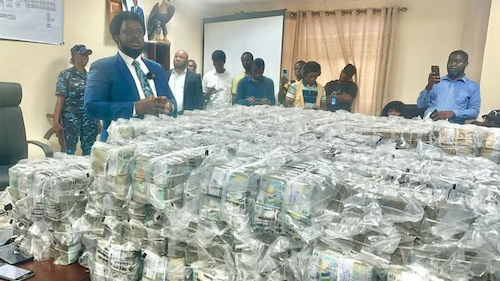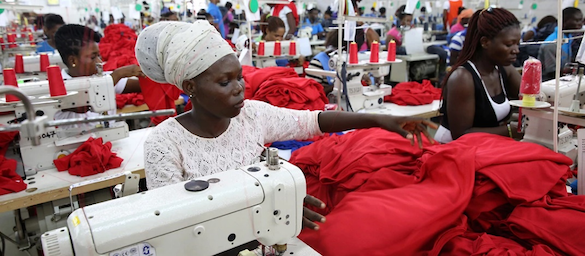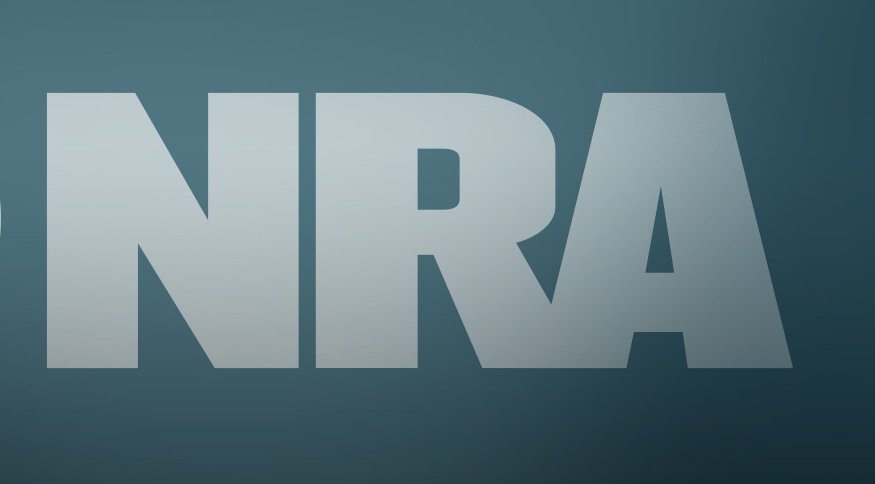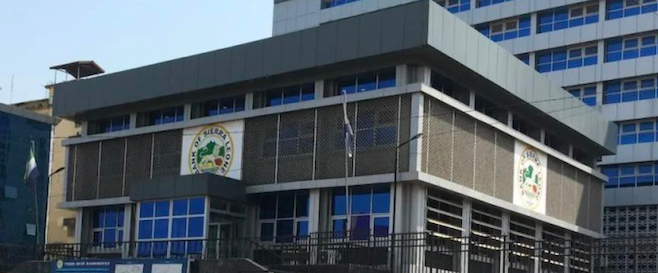02/12/2024 Country
 Francis Kailafa, Chair of the Sierra Leone Anti-Corruption Commission (ACC) at the display of the $1.5m recovered from fraudsters
Francis Kailafa, Chair of the Sierra Leone Anti-Corruption Commission (ACC) at the display of the $1.5m recovered from fraudsters
Approximately US$1.5million in tax payments illegally diverted from the treasury have been recovered by the Sierra Leone's Anti-Corruption Commission (ACC).
This recovered fund, according to Francis Kailafa, Chair of the Commission represents a fraction of what was illegally diverted from the National Revenue Authority (NRA) through illegal transactions done in EcoBank in Freetown.
Over NLe34 million was found to have been so diverted from the account of the NRA in the bank. The commission, he said, is in talks with the Bank to refund all that has been diverted through it by the fraudsters. Francis Kaifala disclosed that an official of the bank in Freetown – one Salim Mansaray, fingered as the culprit behind the illegal transaction has been apprehended having been repatriated to Sierra Leone from Dubai where he fled after the lid was blown on his crime.
"We have not only (yet) recovered the full stolen amount but the commission has also cleared the personal accounts, of the culprit which has over NLe1 million, leaving him bankrupt. He has been charged and has pleaded guilty to various corruption and money laundering offenses."
Eco Bank, in claiming responsibility has commenced the refund of the money to the commission for onward transmission to the National Revenue Authority (NRA) where it was meant for. Consequently, the bank, according to the ACC, has begun to refund the monies. The first tranche is the 1.5 million US dollar tranche which he proudly displayed to media men at the Integrity House office of the commission last week.
The public disclosure according to Kaifala becomes necessary for the people of Sierra Leone to know that the commission is seriously tackling corruption in accordance with his mandate.
By John K. Marah
02/12/2024 Investment
 A Garment Making Factory in Session
A Garment Making Factory in Session
A €12 million European Union Financing Agreement to improve trade competitiveness between Sierra Leone and the European Union (EU) has been ratified by the parliament.
The financing agreement which had been in the offing since March is termed Business Environment and trade competitiveness for 'Salone" (BEC4S). Bockarie Kalokoh Deputy Minister of Finance disclosed that the agreement would focus on supporting small businesses in the drive to make them export oriented.
He informed lawmakers that the Financing Agreement will help in fostering World Trade Organization’s (WTO) rules, the Economic Community of West Africa States (ECOWAS) Trade Liberation schemes as well as enhance trade competitiveness with the country’s trading partners.
The agreement, Kalokoh stated, would also ensure institutional reforms on business and identify clear rules for investors and other businesses. Chairman of the House’s Finance Committee, Mr Francis Kai-Samba applauded government for signing the Agreement with EU and expressed hope that the fund would be actualized for it's intended purposes. He for proper monitoring mechanism. Speaking in same vein, Hon. Abdul Karim Kamara observed that it is a value added Agreement and called for proper management of the resources. Acting Leader of Opposition, Hon Daniel Koroma observed that the Financing Agreement is a grant to the country noting that it is not the first time that the EU had been supporting Sierra Leone. The biggest of the problems being faced by the country ‘management of resources’. He called on the implementing partners to use and manage the funds judiciously.
The Sierra Leone business environment, according to him, is relatively friendly to investors. He however identified the challenges posed by unnecessary bureaucracy in finalizing documentations for businesses. Leader of Government Business, Hon Marhew Nyuma noted that consistency is essential in policy drive adding ‘in gaining this grant, it shows that the country has aligned with strong benchmarks. He assured that transparency and accountability of the Agreement would be effectively monitored and supervised during it implementation.
The agreement is intended to be implemented within five years.
By John K. Marah
22/11/2024 Country
 National Revenue Authority
National Revenue Authority
The National Revenue Authority (NRA) has projected a final revenue of NLe14 billion at the end of this year. Already the authority has reported a total collection of NLe10.73 billion as tax as at the third quarter of the year.
NRA Commissioner General, Mrs. Jeneba Margarita disclosed that the feat was achieved despite a shortfall in projected figure for the third quarter by 8 percent. She explained that the NRA has achieved 83 percent of its yearly target, having collected 10.73 billion Leones on tax even with seven weeks remaining in the fiscal year. “The final revenue projection is set at 14.595 billion Leones, and the NRA is on track to meet this goal”.
Ms Bangura explained the several key strategies that are driving the growth of revenue in the economy. These, according to her, include the automation of vehicle registration taxes in collaboration with the Sierra Leone Road Safety Authority (SLRSA), the implementation of tax stamps for better tracking of Goods and Services Tax (GST) on alcoholic beverages and bottled water, and fuel tax marking to ensure compliance in the fuel sector. Additionally, the NRA has reintroduced import duties on cement and cooking gas.
The Short-Term Revenue Compliance Project (STRIP) aims to enhance tax compliance by targeting overdue taxpayers with fines, account freezes, and the possibility of business closures. Furthermore, a focus on auditing mining companies is expected to promote fair contributions across all sectors, according to NRA officials.ning companies is expected to promote fair contributions across all sectors, according to NRA officials.
By John K. Marah
28/10/2024 Banking
 Sierra Leone Central Bank BSL
Sierra Leone Central Bank BSL
In a bid to realign the national currency – the Leone - with pricing of goods and services in the country, The Bank of Sierra Leone (BSL) has minted sufficient coins to service the economy. The denomination of coins in circulation now according to the bank include One Cent, 5 cents, 10 Cents, 20 cents and 50 cents. BSL informed members of the public to contact their banks (Commercial and Community) as well as micro finance institutions to obtain these coins across the counter.
FS sources in the Money Market are of the opinion that the apex bank is concerned that 2 years after the redenomination of the national currency the use of coins is yet to gain currency.
“One of the aims of the redenomination of Sierra Leone's currency, from old Leones to new Leones, was to correct the perceived misalignment in the currency and pricing structure. However, nearly two years after the launch, smaller denominations like the 1 cent, 5 cent, 10 cent, 20 cent, and 50 cent coins are noticeably absent from circulation”. This, according to him can partly be traced to ‘shortages’ occasioned by banks ceasing to issue coins to customers during withdrawals. “this development has not helped in making the coins useful in the ways the BSL had planned. Consequent upon which no item (products and services) is available at the denomination of our coins. This is very bad for the economy and it’s a fundamental reason most products are costly in the market”.
Mohamed Ganawa an Economics Teacher at the Fourah Bay College, University of Sierra leone welcomed the move to ensure the use of coins in the economy saying it is a direction towards a sound economy. He allayed fears that the use of coins would reduced the value of the currency “In a sense when you say nominal value in Economics, you are saying that the value of a country’s currency in terms of its face value is going to be reduced but the real time value of it is going to be the same”.
Musa Bangay, Director of the Centre for Civic Education, noted that the shortage of coins has been responsible for driving up prices in the economy. “It has made coins practically obsolete in the market”, he said and highlighted the challenges it has posed in sectors like the transportation sector where consumers would need to exchange coins as change after transactions. He recalled instances where transportation fares were set at 4,500 Leones, but passengers often overpaid due to the lack of coins, further fuelling inflation. He expressed optimism that the reintroduction and circulation of coins in the country would help in restoring confidence and balance in the pricing structure in the marketplace.
“It would reduce overpayment and ease financial pressures on low-income earners who are mostly affected by the current situation whereby they have to buy at higher prices and also forgo their change after transactions”.
Speaking in same vein, Thaimu Tullah, journalist and Editor of the City Voice Newspapers is concerned about the reluctance of Sierra Leoneans to embrace the use of coins, ‘despite the significance importance of using coins in an economy as it’s done in other parts of the world’. He extolled the importance of coins in retail transactions, especially where exact payments are not possible using currency notes. Consequent upon which he said the unwholesome practice for many retailers and sellers of goods and services resorting to withholding customers’ money particularly in transactions such as in fuel purchases, where amounts as big as 500 Leones are retained illegally by retailers.
He reckoned that customers are ripped off to the tune of billions of leones on daily basis through such illegal withholding of their monies by retailers. He hailed the move by the BSL saying that circulation of coins would ensure that customers receive their rightful change after financial transactions. Adding: “It would foster a more efficient and fair economy”.
Most business owners, petty vendors and traders interviewed by FS on the use the coins however did not share the optimism expressed above; pointing to the need for financial literacy campaign in the economy to help educate the people on the moves by BSL and the government to achieve positive outcomes on the stabilization of the Leone. Many spoken to expressed concerns about what they called laborious process of collecting, sorting, and counting coins while some others simply do not believe it can affect prices in the market. Isatu Kamara, a trader in Big Market Freetown is not enthusiastic about the coins. The coins, she said would serve no purpose ‘because it will not cause reduction of prices of food items’. Usman Mansaray, a kekeh rider shared same sentiment; “these new coins will not be necessary in the transportation sector because the currency we are used to presently is the Leone note. How do you expect us to get use to the cents they are talking about?”
By John K. Marah
By Vicky Sawyerr